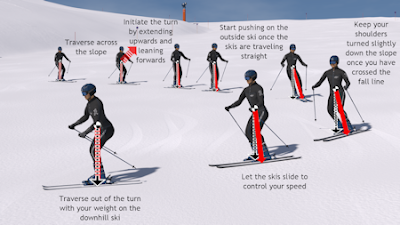Note: if you missed yesterday's post there's a thing to vote on at the bottom.
Today we have an old chestnut on the disagree-a-thon, games making people bad...
Zak:
Ok so you're completely untenable claim is:
"Because a PC is an extension of the player, doing unethical things in character is unethical, chiefly because those actions change the imagined world directly.
Authors and actors do not face the same problems."
This makes no sense because the imagined world has no ethical status. Like, kicking a puppy irl hurts a puppy, you can make a right/wrong decision about that. Kicking an imaginary puppy hurts no puppy, therefore there is no right/wrong decision about it.
Ben:
How is the imagined world not an extension of our own?
It is less impactful, but doing bad things in a collectively imagined world has negative impact
Zak:
That's circular argument.
Morality and ethics are about avoiding harm.
Harm requires an entity that is harmed.
A puppy is an entity.
An imaginary puppy is not.
Ben:
Ethics are not always about avoiding harm in the same ways, like Mayan religion required sacrifice in order to appease gods.
That was harm to avoid larger suffering.
Zak:
1. Mayan religion is religion not a real thing.
2. "can harm and affect people who are participating in it's creation "
Don't just repeat your thesis. Say how. Outside of triggering someone, how can it negatively affect them?
Ben:
1. The effects or religious devotion affect the real world
2. By normalizing bad things, inducing fear in other players, enacting racism, and other actions that reflect the person that enacts them
Zak:
1. Yes but it doesn't mean their reasoning was sound so its a bad example
2. Do you have any science backing up that having a bad thing happen in an RPG makes it seem "more normal" to players? D&D has fireballs. I have never seen a player say a fireball was "normal".
Ben:
1. Yes, but their reasoning i.e. their rationale was a form of ethics. Ethics just means right and wrong, and our right and wrong wasn't theirs
2. Bad things happen, but players doing those bad things knowingly is the problem
Learning by doing is much stronger when people enact vs just read or understand in the abstract, and doing things in RPGs is much closer-and could normalize things
Zak:
1. Yes and theirs was wrong so not relevant unless you are ALSO claiming that there are supernatural forces influencing our destiny. It's not relevant.
2. I asked if you had any science to back up this claim. Please answer.
Ben:
1. Agreed to a point, I will let it lie for now, I think we can agree that religion is not the core of this
Gimme a sec, will give some examples of learning by doing
Like how it affects learning
Zak:
NOT "learn by doing"
I asked for science about this preposterous claim:
"By normalizing bad things, inducing fear in other players, enacting racism, and other actions that reflect the person that enacts them"That doing bad things in an RPG leads to normalizing them in real life.
-
If you provide examples that people "learn by doing" you are not answering the question at all in any way.
Ben:
So acting things out isn't considered a form of doing?Zak:
If I want to learn to ski, then of course I can learn to ski by skiing.
That's totally unrelated to if I don'' want to be a murderer, I can become one against my will by having a PC be a murderer in a pantomime imaginary world of an RPG.
Those are not connected concepts.
"Learning by doing" requires someone wants to acquire a skill and so does by actually doing it.
Your thesis is that someone doesn't want to acquire something that's not even a skill it's a personality trait and somehow acquires it by pretending to have it.
Ben:
Well, that applies heavily to a physical skill.
Like skiing does not translate to racism, the actions associated are very different, one can be learned and reinforced in the abstract or without physical reinforcement.
Zak:
Yeah they're unrelated that's why your argument makes no sense.
Learning a skill and aacquiring a negative personality trait are not related.
"Learning by doing" is about acquiring a skill.
So:
Do you have any science showing that someone doing bad things in RPGs leads them to do them in real life? Because without it you are literally repeating the Satanic Panic reasoning all over again.
Ben:
The satanic panic was not just about rpg, or even at it's core about rpg
Rpg was just a affected thing.
Zak:
Please answer the question you were asked.
Ben:
Trying, but in doing that I have to isolate some things
Yoon, Gunwoo
Vargas, Patrick
Know Thy Avatar: The Unintended Effect of Virtual-Self Representation on Behavior
Mostly it has to do with the persona involvement or identifying with what they are playing as.
Zak:
Link?
Ben:
https://www.researchgate.net/publication/260117599_Know_Thy_Avatar_The_Unintended_Effect_of_Virtual-Self_Representation_on_Behavior
Zak:
I will read it if necessary, but first: can you summarize the claim the paper makes?
Ben:
Essentially, the participants were more likely to exaggerate or react differently to tasks depending on how long they roleplayed, what they roleplayed as, or how involved or how strongly they identified with their persona givenZak:
(reads paper--people play either Voldemort or Superman and then are given a test about whether to give a stranger chocolate or chili sauce)
They played for 5 minutes.
I wouldn't call this a conclusive test especially in the face of the overwhelming research showing (for example) violence in video games does not translate to real-world violence.
Also, the test of "Good vs evil" was whether they'd give someone chocolate (rated "good" BUT has sugar in it) or chili sauce (rated "bad" but it's not crossing any ethical lines to give someone chili sauce).
Ben:
Of course
Trials like this are very short.
So the effect from roleplaying for a extended period would potentially affect things much more.
And with video games, you have much less agency
It wasn't just the chocolate or chili, but also the amounts.
Zak:
So do you have science which backs up your causual claim not some other causal claim?
Also fwiw, Voldemort is a stupid character invented by a transphobe and if a scientist made me play them in a game I'd be in a bad mood, so this test might not be testing whether I am playing a good or bad charatcer but whether I am having fun or not and so put in a generous mood or not.
In an RPG, players are generally doing what they want and games where you're Superman are far more common than Voldemort, so it may be just rediscovering that people would rather play Superman than Voldemort.
Ben:
Well, closely related is the use of roleplaying in psychotherapy
Which is well documented
It stands to reason that if used to induce or allow behaviors that are not therapeutic, or reinforcement of behaviors. it could be bad
Zak:
No "it stands to reason". I asked for proof.
So do you have science which backs up your causual claim not some other causal claim?
Ben:
Also, Superman is patriotic and white and male lots of other things, both are very polarizing characters
So I agree that their choice of character could affect things
Zak:
All bad ideas AND good ideas start with someone saying "it stands to reason". What we need is proof of your claim.
So do you have science which backs up your causual claim not some other causal claim?
Ben:
https://scholar.google.com/scholar?hl=en&as_sdt=0%2C44&q=roleplaying+in+psychotherapy&oq=roleplaying+
(this is just the results of a google search calling up lots of papers with titles)
These in aggregate point to roleplaying having an effect on behavior
Zak:
No.
You're trying to prove a specific point:
Roleplaying by doing bad things can cause people to do bad things irl/
Not a much easier, simpler point that everyone knows:
Acting out skills you want to have, that you accept are ethically fine to do and that everyone involved thinks you should learn to have can help you learn them.
I said this already: you are not being asked to prove the obvious, well-known, uncontroversial idea that games can help people learn.
You are being asked to prove the controversial pseudoscientific claim that games can measurably change your personality for the worse by having your avatar perform bad actions.
Please address that, not some unrelated thing.
Ben:
That idea has a reverse, the concept that you can learn through roleplaying means that it is obvious people could learn or adopt poor behavior if it is accepted and not challenged
Which can happen
Zak:
A skill is not personality trait nor is it the "opposite" of a personality trait.
Those are different things.
Ben:
Agreed.
Zak:
So you're not making any sense
You are being asked to prove the controversial pseudoscientific claim that games can measurably change your personality for the worse by having your avatar perform bad actions.
Please address that, not some unrelated thing.
Ben:
I think it is possible I am biased on this frot.
I have had many experiences where people perceived no moral limits in an RPG, and did things they would never do in real life in the guise of a RPG.
The better I have grown to know these people, the more I have grown to think that their actions, however unhinged, seem to be a reflection of them, and not just a little
So maybe I should say that people's underlying personality or nature comes out when roleplaying.
I think I have it wrong that roleplaying causes it, it makes it evident
Zak:
Ok, sounds like we're done.
I'm sorry you went through that, btw.
Anything to add?
Ben:
No, just thanks for not relenting.
I get very Oppositional defiant disorder.
So do we agree that people's nature comes out when roleplaying?
If we do, I think that is much more interesting anyways.
Zak:
I think that's true, but often not in an easily reducible way.
Like, eaxmple: I know a lot of gamers in the OSR (Patrick, Scrap, etc) who would kind of let other people take over in the game and wouldn't voice their opinion about the overall direction of what the party got up to. If they had fun--great! If they didn't--they would blame the people they let make their decisions for them. They would rather do something they didn't like then complain than risk being the leader and thus being seen as being as responsible as they actually are.
Their play revealed something about themselves but not in a way you'd be able to predict at the time.
Ben:
Hmm
I have seen this too
Anyways, I agree that we are done
My original statement holds no water
Thanks for your time!
Zak:
A pleasure, Ben.










